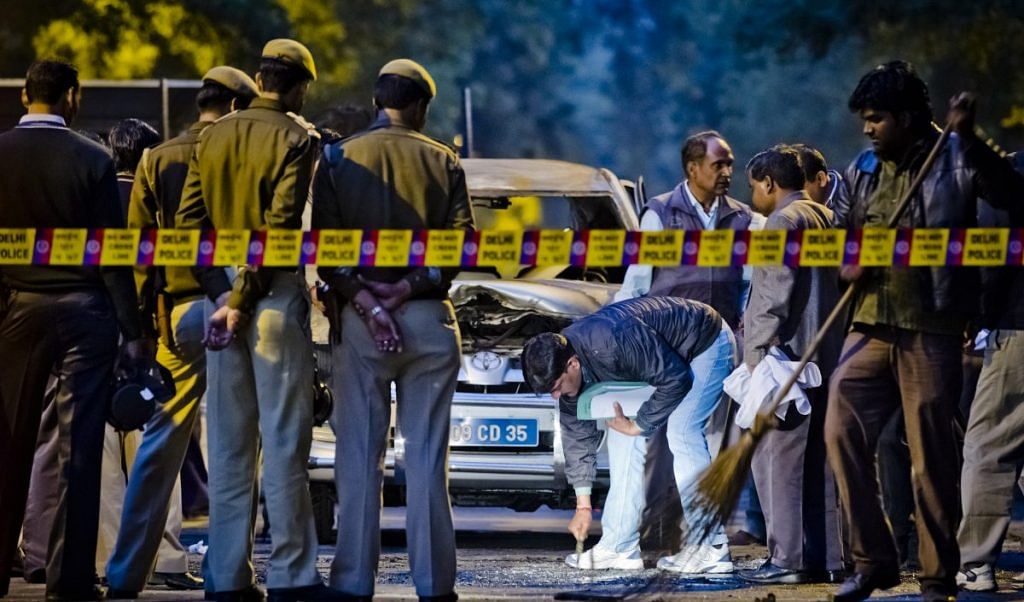New study shows strong correlation between the increase in likelihood to vote and geographical proximity to a terror attack.
Among the well-known bouquet of issues that sways an election are price rise, corruption, unemployment. Scholars around the world have in recent years tried to find out if security and terrorist incidents affect voter behaviour.
The psychological and material impact of terrorist incidents can force the electorate to rally behind the incumbent government and, in some cases, oust it as well. However, a clear trend remains elusive to researchers. A new study by Georgetown University Professor Laia Balcells and NYU Professor Gerard Torrats-Espinosa further complicates the research findings.
The study titled “Using a natural experiment to estimate the electoral consequences of terrorist attacks” looks at the impact of terrorist attacks on voting choices in Spain. Its results suggest that terrorist attacks increase individuals’ intent to participate in democratic elections but fail to change their voting choices. This result contradicts some other studies focused on Israel, which observe a shift towards Right-wing parties after a terrorist strike.
No such academic study has probably been conducted for India yet, say psephologists.
Also read: Why do the poor in India vote for Right-wing parties like the BJP?
What existing studies say
The latest study on terrorist attacks in Basque country finds that individuals from a province interviewed after the attack were 2 to 3 per cent more likely to vote than individuals of the same province interviewed before the attack. The change in the likelihood to vote is called an activation effect. It notes a strong correlation between the increase in likelihood to vote and geographical proximity to the attack. Voters in the site of most of the attacks were 11 per cent more likely to vote after an attack. And among them, those who did not vote in the previous national election were 14 per cent more likely to vote after an attack. For those in a different province, the corresponding increase was around 3 per cent.
The study also observes a greater increase in electoral participation if attacks are carried out against civilians and politicians (4 per cent) as opposed to military and police. In the latter case, hardly any increase is registered.
Also, surprisingly, a greater increase in the likelihood to vote is observed among voters of centre-Left party, which was in power during most of these attacks in Spain. The increase for the centre-Right party remains non-existent. But there appears to be no change in allegiance among voters. It merely means that more supporters of that party are likely to vote after an attack.
Interestingly, the study fails to observe any change in the direction of votes from the previous election after an attack.
This contradicts earlier research on the subject that recorded a voter shift towards Right-wing parties after an attack.
Also read: What Indian voters buy with ‘bribes’ just before elections: Booze, good food & clothes
In a 2008 study, researchers from RAND Corporation and Hebrew University of Jerusalem demonstrated a 1.35 per cent increase in the vote share of Right-wing bloc after an attack up to three months before an election. Acknowledging the possibility that this increase might be a result of different levels of Left and Right-wing voter turnout, the study tests it and refutes it. The study concluded, “Any influence of terrorism on the relative support for the Right bloc must be a consequence of voters changing their preferences and not their turnout decisions”.
In Left-leaning localities, however, the study observed an increase in the vote share of Left bloc parties provided the attack took place outside the locality.
In a 2014 study by IDC Herzliya and American University, researchers found that it’s not just an actual attack but the mere threat of an attack (rocket attacks from Gaza in southern Israel) that increases the vote share of Right-wing parties by 2 to 6 per cent points in affected localities.
A muddled picture for India as well
No such academic study has probably been published for India. Psephologists like Sanjay Kumar (CSDS) and Manu Sharma (C Voter) suggest that terrorism isn’t a particularly important issue for the Indian electorate and a clear trend remains difficult to discern.
The Mumbai terror attack that shook India in November 2008 was a sort of crescendo after multiple terror attacks and the opposition party BJP was mounting immense pressure on the government. Yet, the Mumbai attack failed to change the BJP’s flailing fortunes in elections that followed days after.
Even though it managed to retain the majority in Madhya Pradesh, which went to polls on 27 November that year, BJP’s vote share actually fell by almost 4.5 per cent from 42.5 per cent in 2003 elections to 38.09 per cent in 2008. Its seat tally dropped from 173 to 143. In the Delhi polls on 29 November, it failed to dislodge the incumbent Congress government and saw only a marginal increase in its vote share from 35.22 to 36.84 per cent. Even worse, in the Rajasthan elections in December, it lost power and saw its vote share plummet from 39.2 to 34.27 per cent.
In Maharashtra, where elections took place in October 2009, the combined BJP-Shiv Sena vote share dropped from 33.64 to 30.28 per cent.
Also read: 5 myths about Muslim voters in modern India
However, in the Punjab state elections in 2017, the Aam Aadmi Party was widely expected to perform well. But it didn’t. It has been argued by some that a bomb blast in Maur four days before the elections and allegations of cosying up to the Khalistanis dented AAP’s hopes in Punjab and delivered Congress a much bigger victory than was expected. People were already upset with the ruling BJP-SAD alliance, and therefore, it couldn’t gain much.
But these are anecdotal findings. Only a formal study can present a clear picture. Or maybe it will just blur it even more.
Read the full study here.
